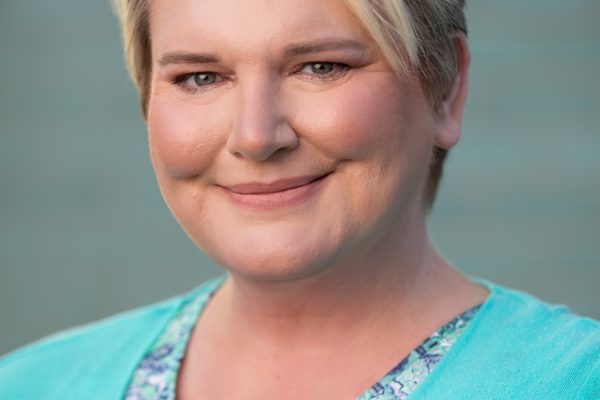Wigtown YA | Ginny Myers Sain
How did your career in theatre prepare you for life as an author?

In the run up to her Wigtown YA event, the YA team reached out to Ginny Myers Sain to ask about her transition from working in theatres to writing novels.
As someone who has a degree in theatre and who has spent my entire adult life working as an acting teacher and director, this is one of my favourite things to talk about! Theatre has always been my first love, and I think there are two main things that writers can learn from actors and directors.
One thing I have transferred from my theatre experience to my writing experience is that I see the scenes I write very visually. In my head, I see them just like scenes in a play on stage. So I’m very much thinking about where the characters are, what they are doing with their bodies and their faces. I think, if I were directing this scene on stage, what would I want this actor or actress to do in this moment? Would I tell them to get up and walk away? Or to put their hand on the other person’s arm? Or to look down at the ground? In a play, all we have is the dialogue, the written lines the characters say to each other. We don’t get things like internal monologues, narration, descriptive passages, etc. Those are all tools that writers get to use in novels, that don’t really exist in the theatre. So, we very much rely on those visual cues to add depth and meaning to performances, and I think that transfers really well to novel writing. I’m also very aware of giving my characters props to hold! Props are magic on stage, and they work they same way on the page. If you have a scene that just isn’t working, try giving your character a coffee mug or having them fold laundry. It really grounds the scene!
Something else that I think comes with theatre experience is that I’m really focused on the subtext. The great acting teacher and director Konstantin Stanislavski said, “Spectators come to the theatre to hear the subtext. They can read the text at home.” What he meant is that, in a play, it’s often what the actors don’t say to each other that is the best part of the scene. It’s the undercurrent of meaning beneath the words that really matters. I really try to keep that in mind as I write. The dialogue characters have together is so important, but even more important is the meaning under those words. I try to focus as much on what my characters are not saying to each other as on what they are saying.
It’s been such an interesting journey going from teaching and directing theatre (which I very much hope to get back to post pandemic) to writing. One of the things I’ve learned is that writing is not the solitary art I thought it was. It takes so many people to bring a book to life. In that way, it is a lot like putting on a play. I’ve had a couple of people ask me in interviews if I’d ever consider adapting DARK AND SHALLOW LIES for the stage, and I always give the same answer…. Probably not. It is very hard to train alligators. So for now, I’m very happy to have a debut novel out in the world and I’m thrilled to have the opportunity to share it with so many wonderful readers.
If you would like to hear more from Ginny Myers Sain, join us for her event during this year's Wigtown YA programme. You can purchase copies of Dark and Shallow Lies from our online bookshop.